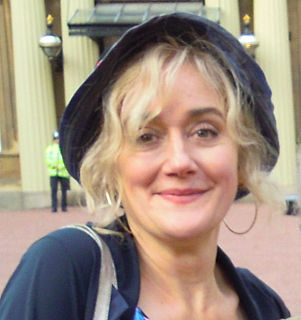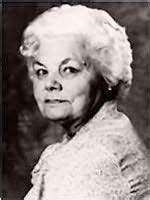A Quote by Elizabeth Gaskell
But Margaret was at an age when any apprehension, not absolutely based on a knowledge of facts, is easily banished for a time by a bright sunny day, or some happy outward circumstance. And when the brilliant fourteen fine days of October came on, her cares were all blown away as lightly as thistledown, and she thought of nothing but the glories of the forest.
Related Quotes
One year Halloween came on October 24, three hours after midnight. At that time, James Nightshade of 97 Oak Street was thirteen years, eleven months, twenty-three days old. Next door, William Halloway was thirteen years, eleven months, and twenty-four days old. Both touched toward fourteen; it almost trembled in their hands. And that was the October week when they grew up overnight, and were never so young any more.
For they might be parted for hundreds of years, she and Peter; she never wrote a letter and his were dry sticks; but suddenly it would come over her, If he were with me now what would he say? --some days, some sights bringing him back to her calmly, without the old bitterness; which perhaps was the reward of having cared for people; they came back in the middle of St. James's Park on a fine morning--indeed they did.
Life is not stationary. Seconds, minutes, hours, days, weeks, months, and years all tick away at the same clip for everyone. No age-group can be isolated. None of us can settle into infancy, youth, middle age, or old age. We all grow older, and, incidentally, it is an exciting thought if the accent is on growing. "Though our outward man perish," said Paul, "yet the inward man is renewed day by day" (2 Cor. 4:16; italics added).
She expected the pain, when it came. But she gasped at its sharpness; it was not like any pain she had felt before. He kissed her and slowed and would have stopped. But she laughed, and said that this one time she would consent to hurt, and bleed, at his touch. He smiled into her neck and kissed her again and she moved with him through the pain. The pain became a warmth that grew. Grew, and stopped her breath. And took her breath and her pain and her mind away from her body, so that there was nothing but her body and his body and the light and fire they made together.
Suddenly she felt strong and happy. She was not afraid of the darkness or the fog and she knew with a singing in her heart that she would never fear them again. No matter what mists might curl around her in the future, she knew her refuge. She started briskly up the street toward home and the blocks seemed very long. Far, far too long. She caught up her skirts to her knees and began to run lightly. But this time she was not running from fear. She was running because Rhett's arms were at the end of the street.
She wasn't looking her best; her hair was coming down, for she had shed hairpins as she'd run, and her face lacked powder and lipstick. She looked hot and tired and surprisingly happy. He thought that he had never seen anyone quite as beautiful, so absolutely necessary to his happiness. It wasn't the first time he had fallen in love, but he knew that this was the last.
Izzy," said Jace, as they neared the pond, and she jumped up and spun around. Her smile was dazzling. "Jace!" She flew at him and hugged him. Now that was the way sisters were supposed to act, Clary thought. Not all stiff and weird and peculiar, but happy and loving. Watching Jace hug Isabelle, she tried to school her features into a happy and loving expression. "Are you all right?" Simon asked, with some concern. "Your eyes are crossing." "I'm fine." Clary abandoned the attempt. "Are you sure? You looked sort of… contorted.
There must be another life, she thought, sinking back into her chair, exasperated. Not in dreams; but here and now, in this room, with living people. She felt as if she were standing on the edge of a precipice with her hair blown back; she was about to grasp something that just evaded her. There must be another life, here and now, she repeated. This is too short, too broken. We know nothing, even about ourselves.
Media hosts just talk about Golda Meir and Margaret Thatcher and again miss the point. I was talking about AMERICAN culture, ladies and gentlemen. As I pointed out, if Margaret Thatcher or Golda Meir, by the way, she didn't care, and Margaret Thatcher didn't care how she look like. If Margaret Thatcher were running for president today, as she was when she was the Iron Lady, we wouldn't have her mom doing television commercials telling us how wonderful she was when she was a kid and how nice she is.
As if to build a fence around the fatal emptiness inside her, she had to create a sunny person that she became. But if you peeled away the ornamental egos that she had built, there was only an abbys of nothingness and the intense thirst that came with it. Though she tried to forget it, the nothingness would visit her periodically - on a lonely rainy afternoon, or at dawn when she woke up from a nightmare. What she needed at such times was to be held by someone, anyone.






































